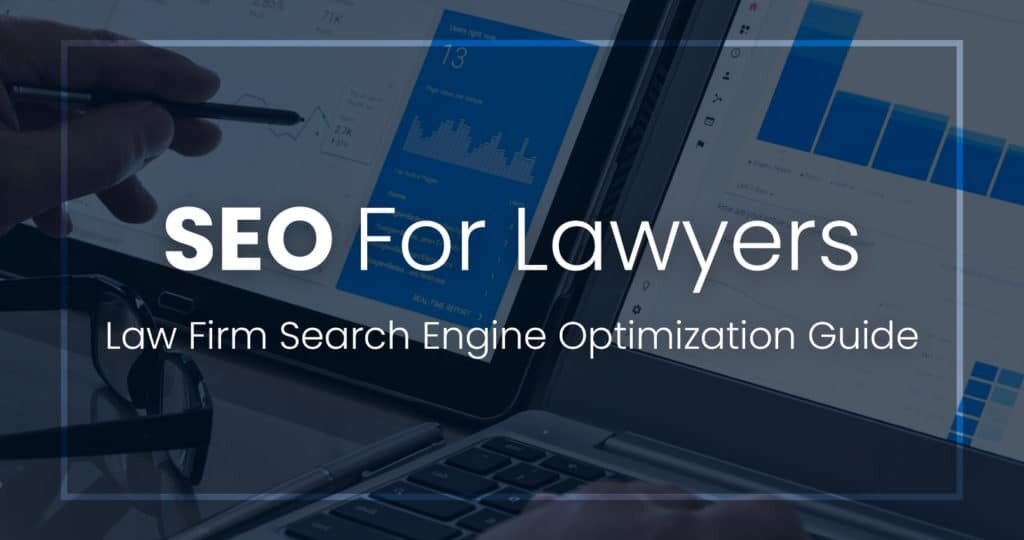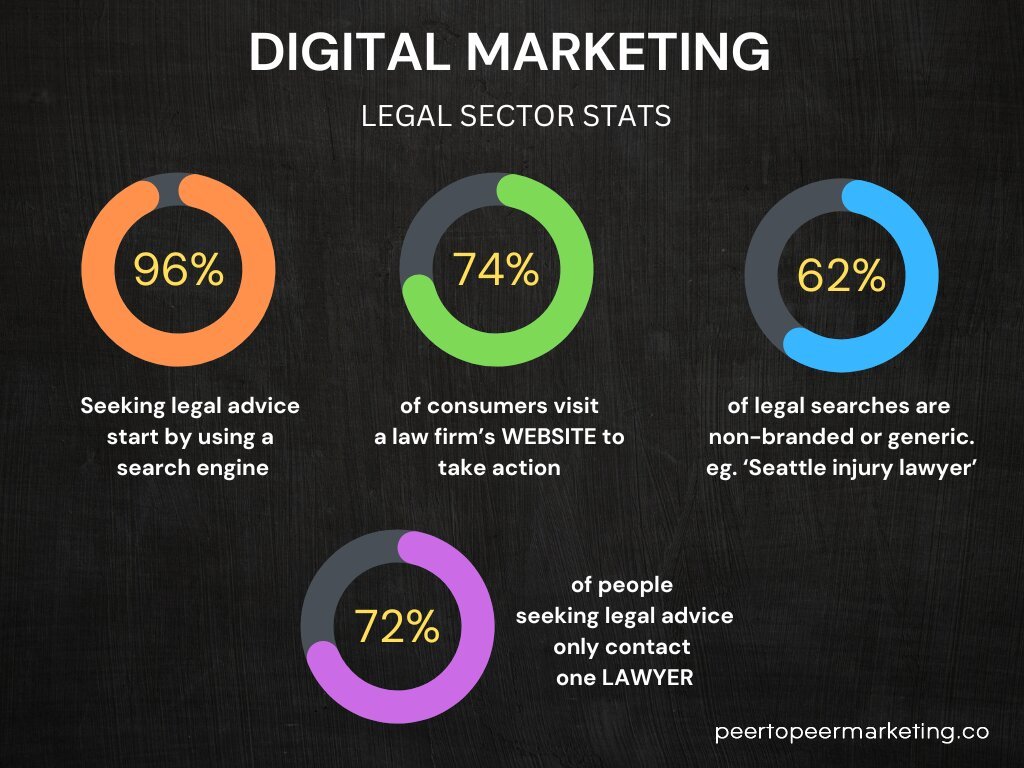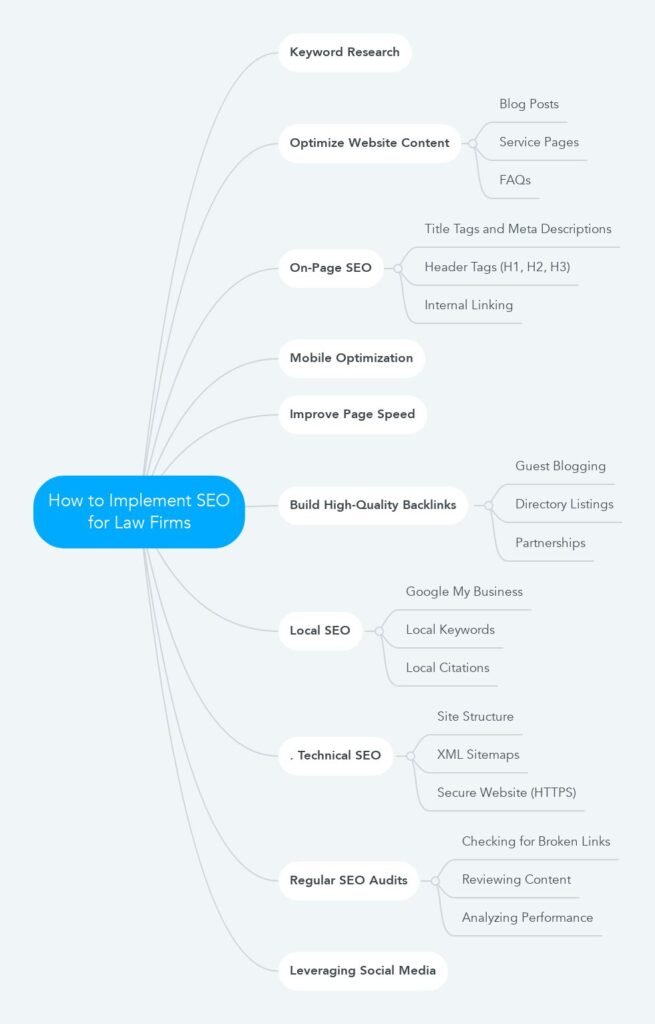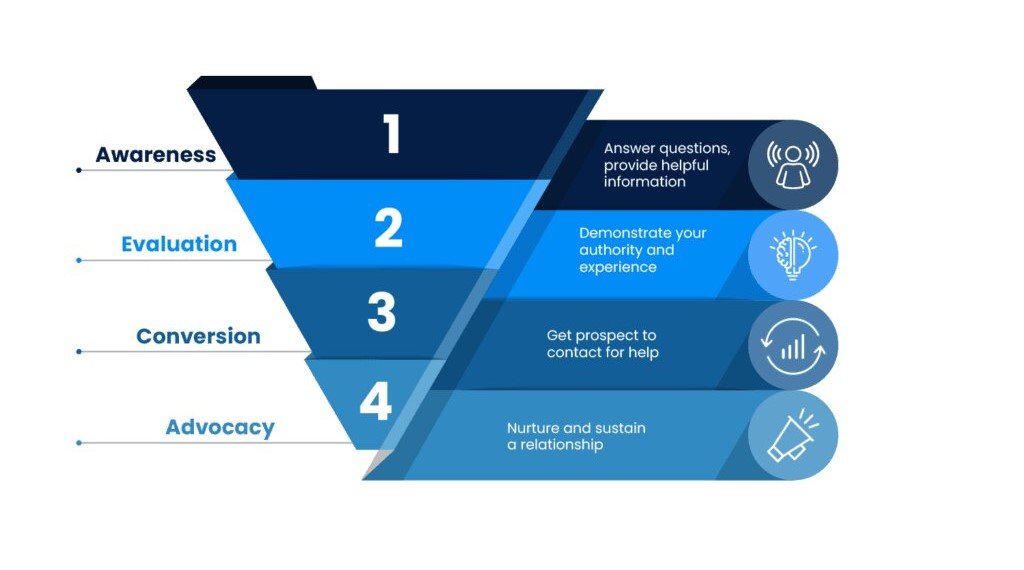
In today’s digital-first world, it’s critical for law firms to have a strong online presence. With more people turning to search engines to find legal services, “SEO for lawyers” has become a vital component of any law firm’s marketing strategy. To stay competitive and ensure your firm is visible to potential clients, you need to leverage search engine optimization (SEO) effectively.
This article will cover everything you need to know about “SEO for attorneys,” including the benefits, strategies, and best practices for enhancing your law firm’s online visibility.
Understanding SEO for Lawyers
- What is SEO?
Search Engine Optimization (SEO) refers to the process of improving a website’s visibility in search engine results. SEO involves optimizing various aspects of a website, from its content and structure to its technical configuration, to ensure it ranks higher for relevant search terms.
For law firms, SEO focuses on making your website more discoverable for potential clients searching for legal services. This can include keywords like “personal injury lawyer in [City]” or “divorce attorney near me.”
- Why SEO is Essential for Law Firms
More than 96% of people seeking legal advice use a search engine at some point in their decision-making process. If your law firm isn’t ranking on the first page of Google, you’re likely missing out on significant potential business. SEO helps ensure that your firm appears in front of the right audience at the right time—when they’re actively searching for legal services.
- The Role of Search Engines in Legal Services
Search engines like Google use algorithms to determine which websites appear first based on a user’s query. For law firms, appearing in these top positions can dramatically increase visibility, credibility, and the chance of being contacted.
By focusing on both “law firm SEO services” and broader “attorney SEO marketing” strategies, you can ensure your firm stands out from the competition.

Benefits of SEO for Law Firms
- Increased Visibility and Credibility
Higher rankings lead to greater visibility. When your firm consistently appears at the top of search results, potential clients are more likely to view your firm as authoritative and trustworthy. Research shows that the first five organic results account for 67.6% of all clicks, highlighting the importance of SEO for attracting clients.
- Attracting Targeted Clients
Effective SEO strategies, like targeting local keywords (e.g., “divorce lawyer in [City]”), ensure that your website attracts clients specifically seeking your legal services in your area. This laser-focused targeting results in higher conversion rates and more qualified leads.
- Building Trust Through Content
Publishing valuable legal content, such as blogs, FAQs, and guides, not only improves your search rankings but also builds trust with your audience. Clients are more likely to contact a firm that provides useful information upfront, showcasing their expertise and experience in the field.
Keyword Research for Legal Services
- Importance of Choosing the Right Keywords
Keywords are the foundation of any SEO strategy. For “lawyer SEO marketing,” selecting the right keywords means understanding the search terms potential clients are using. Tools like Google Keyword Planner or Ahrefs can help you discover relevant keywords for your practice area.
- Local SEO Keywords for Law Firms
Local SEO is especially important for law firms since most clients prefer local legal services. Terms like “personal injury lawyer in [City]” or “criminal defense attorney near me” are examples of keywords that can boost your local rankings. Incorporating location-based keywords can increase your chances of being found by nearby clients.
- Long-Tail Keywords in Legal SEO
Long-tail keywords are more specific search terms that often have lower competition. For example, instead of targeting “lawyer,” you might target “experienced bankruptcy lawyer in [City].” These longer keywords can help capture more focused, ready-to-convert traffic.
On-Page SEO for Law Firms
- Optimizing Meta Tags and Titles
Meta tags and titles are crucial for search engine visibility. Your meta title should be concise, relevant, and include your primary keywords (e.g., “Best Personal Injury Lawyer in [City]”). Meta descriptions should provide a brief overview of the page’s content and entice users to click.
- Using Heading Tags Effectively
Proper use of heading tags (H1, H2, H3) helps both search engines and users navigate your content. Ensure your H1 contains the primary keyword (e.g., “SEO for Lawyers”), and use subheadings to break up the content for readability.
- Optimizing Images and Alt Text for Lawyers’ Websites
Images enhance user experience, but they also play a role in SEO. Adding relevant alt text to your images (e.g., “law firm consultation”) can help improve search engine rankings while making your website more accessible.
Local SEO for Lawyers
- Google My Business Optimization
A well-optimized Google My Business (GMB) profile is a powerful tool for improving your local SEO. Ensure your profile is complete with accurate information, including your name, address, phone number, and website (NAP). Add photos, respond to reviews, and regularly update your profile for the best results.
- Importance of Online Reviews
Positive client reviews can greatly influence your local SEO rankings. Encourage satisfied clients to leave reviews on Google, Yelp, and other legal directories. Studies show that 88% of consumers trust online reviews as much as personal recommendations.
- NAP Consistency (Name, Address, Phone Number)
Consistent and accurate NAP information across all platforms (your website, directories, social media) is crucial for local SEO. Search engines use this information to verify your business, and any discrepancies can hurt your rankings.

Content Marketing for Law Firms
- Creating Valuable Legal Content
Content marketing is one of the best ways to drive traffic and establish authority in your practice area. Blogs, articles, and FAQs that address common legal questions can help prospective clients find your site.
- Blogging for Lawyers
Regularly publishing blog posts that answer common legal queries (e.g., “How to File for Bankruptcy?”) can position your firm as an industry leader and boost your SEO efforts. The more valuable content you provide, the more trust you’ll build with your audience.
- Case Studies, FAQs, and Guides
Comprehensive case studies, FAQs, and step-by-step legal guides demonstrate your expertise and are excellent tools for improving your site’s SEO. This kind of content is highly shareable and can result in backlinks, further improving your SEO performance.

Mobile Optimization and User Experience
- Mobile-Friendly Website Design
With over 60% of online searches now coming from mobile devices, having a mobile-optimized website is non-negotiable. Ensure your website is responsive and easy to navigate on smartphones and tablets.
- Improving Page Load Speed
Page speed is a critical ranking factor. Law firm websites that load faster not only rank better but also provide a better user experience. Compress images, enable browser caching, and use a content delivery network (CDN) to reduce load times.
- Enhancing User Navigation
Clear, intuitive navigation helps users find the information they need quickly. Well-structured navigation and internal linking also improve your website’s SEO by making it easier for search engines to index your content.
Technical SEO for Law Firms
- SSL Certificates and Website Security
Google prioritizes secure websites (those with HTTPS). Ensuring your website has an SSL certificate not only improves security but also boosts SEO rankings.
- Optimizing for Mobile Devices
Google’s mobile-first indexing means your site’s mobile version is prioritized for ranking. Make sure your mobile site delivers an exceptional user experience with fast load times, easy navigation, and minimal pop-ups.
- URL Structure and Sitemaps
A clear and organized URL structure helps search engines understand your site’s hierarchy. Using simple, descriptive URLs (e.g., “yourlawfirm.com/family-law”) makes it easier for both users and search engines to navigate your site.
Link Building Strategies for Law Firms
- Acquiring Backlinks from Legal Directories
Backlinks from reputable legal directories (such as Avvo, Justia, or FindLaw) help build your site’s authority. These links signal to search engines that your website is credible and valuable.
- Guest Posting on Legal Blogs
Publishing guest posts on well-known legal blogs can help you gain exposure and valuable backlinks. This can drive traffic to your site and improve your SEO rankings.
- Building Local Partnerships and Citations
Partnering with local businesses, charities, or law-related organizations for events or content can also earn you local citations. These citations and backlinks boost local SEO efforts by increasing your site’s relevance to your geographic location.
Tracking SEO Performance
- Using Google Analytics to Monitor Traffic
Google Analytics is a powerful tool for tracking your SEO efforts. It provides insights into how visitors are finding your site, which pages they’re visiting, and how long they stay.
- Setting Up Goals and Conversions
Setting up goals in Google Analytics helps you measure specific actions taken by visitors (e.g., form submissions, phone calls). Tracking these conversions is essential for understanding the ROI of your SEO efforts.
- Tracking Keyword Rankings
Use tools like SEMrush or Moz to monitor how your keywords are performing. Regular tracking allows you to adjust your SEO strategy based on what’s working and what isn’t.
Social Media and SEO Synergy
- Integrating Social Media into SEO Strategy
While social media signals don’t directly influence SEO, promoting your legal content on platforms like LinkedIn, Facebook, and Twitter can increase your content’s visibility and drive traffic back to your website.
- Promoting Legal Content on Social Platforms
Sharing blog posts, case studies, and legal guides on social media can help amplify your reach and drive traffic to your site. Social shares can also indirectly improve SEO by generating backlinks.
- Engaging with Clients on Social Media
Engaging with your followers by answering questions or providing legal insights builds trust and can lead to more business. Active engagement also humanizes your firm and helps build relationships with potential clients.
Common SEO Mistakes Law Firms Should Avoid
- Keyword Stuffing
Overloading your content with keywords can harm your SEO rather than help it. Focus on writing natural, valuable content that integrates keywords in a meaningful way.
- Neglecting Local SEO
Local SEO is critical for law firms. Neglecting to optimize for local searches can result in lost business opportunities, especially for smaller firms.
- Ignoring Mobile Optimization
Failing to ensure your website is mobile-friendly can hurt your SEO rankings and drive potential clients away. Make mobile optimization a priority in your law firm’s SEO strategy.
The Role of PPC in Law Firm SEO
- SEO vs. PPC: Which Is Better for Lawyers?
While SEO provides long-term organic growth, PPC (Pay-Per-Click) ads offer immediate visibility. Both strategies can complement each other, with SEO focusing on sustainable growth and PPC offering a short-term boost in visibility.
- How PPC Complements SEO Efforts
PPC ads can target high-value keywords that are competitive to rank for organically. Combining SEO and PPC efforts maximizes your online presence and brings in clients from both organic and paid search results.
- Using Google Ads Effectively
Google Ads allows you to bid on keywords like “best criminal lawyer in [City]” and appear at the top of search results. When used in conjunction with a strong SEO strategy, PPC can help you dominate search results and increase leads.
Legal SEO Trends to Watch in 2024
- AI and Voice Search Optimization
With the rise of AI-powered tools and voice search, law firms need to optimize their content for voice queries like “find a lawyer near me.” Natural language processing (NLP) will play a larger role in SEO strategies moving forward.
- The Impact of Google’s Algorithm Updates
Google regularly updates its search algorithm, so it’s essential to stay informed about changes that may affect your rankings. Focus on creating high-quality, user-focused content to weather algorithm changes.
- Video Marketing and SEO for Lawyers
Video content is becoming increasingly important for SEO. Videos like client testimonials, legal explanations, and case studies can enhance user engagement and improve your site’s SEO performance.
Conclusion: Building a Sustainable SEO Strategy for Lawyers
To stay competitive in the digital marketplace, law firms must invest in a comprehensive SEO strategy that combines on-page optimization, content marketing, technical SEO, and local SEO. Regularly audit your SEO efforts and adjust your tactics based on performance data to build a sustainable, long-term strategy.
Why You Should Hire Us
As you can see, SEO can be a really complicated process, and it’s crucial to get it right in order to achieve real results. At a fraction of the industry cost, we offer comprehensive digital marketing services, including SEO, website management, digital strategy, social media, and much more—all in one package. While most agencies charge thousands per month just for SEO, we provide these services at a significantly lower rate without sacrificing quality. Whether you’re a small business, a startup, or even a larger firm with a limited budget, we believe everyone deserves a strong online presence. Our team is dedicated to offering unrivaled support, focusing on your firm’s unique needs. Let us help transform your business and take your online visibility to the next level. Reach out to us today and let’s get started!
Frequently Asked Questions (FAQs) About SEO for Lawyers
1. What is SEO for lawyers, and why is it important?
SEO for lawyers is the process of optimizing a law firm’s website to improve its visibility in search engine results for relevant legal queries. It’s essential because most potential clients search online for legal services, and if your law firm doesn’t appear in the top results, you may miss out on valuable leads. Effective SEO can help you attract targeted clients, build trust, and stay ahead of your competition.
2. How long does it take for SEO to show results for law firms?
SEO is a long-term strategy, and it typically takes 4 to 6 months to start seeing noticeable improvements in rankings. However, this timeline can vary depending on factors like keyword competition, the quality of your content, and your current website’s SEO health. It’s important to consistently optimize and update your strategy to maintain and improve your rankings over time.
3. What are the best keywords for lawyer SEO marketing?
The best keywords for lawyer SEO marketing are those that are relevant to your practice area and location. These include a mix of general legal terms and long-tail keywords (specific phrases that potential clients might search for). Examples include “personal injury lawyer in [City],” “criminal defense attorney near me,” and “best divorce lawyer in [City].” Keyword research tools like Google Keyword Planner can help you find high-performing keywords.
4. What is local SEO, and why is it important for law firms?
Local SEO focuses on optimizing your law firm’s website for local search queries, such as “divorce lawyer near me” or “family law attorney in [City].” It’s crucial for law firms because most clients prefer legal services in their area. Local SEO strategies, like optimizing your Google My Business profile and building local citations, can help you attract clients in your immediate geographic location.
5. How do online reviews impact law firm SEO?
Online reviews play a significant role in local SEO rankings. Positive reviews on platforms like Google, Yelp, and legal directories like Avvo can boost your firm’s credibility and trustworthiness in the eyes of potential clients. Google uses reviews as a ranking factor, so a law firm with high ratings and regular positive feedback is more likely to appear in local search results.
6. Can I handle SEO for my law firm, or should I hire an expert?
While it’s possible to handle SEO on your own, it can be time-consuming and requires specialized knowledge to see the best results. For most law firms, hiring an expert or a “law firm SEO agency” ensures that all aspects of your SEO—content, technical SEO, keyword research, and more—are optimized effectively. An agency can also provide insights and strategies that keep you competitive in a constantly evolving digital landscape.
7. What are the common SEO mistakes law firms make?
Some common SEO mistakes include keyword stuffing (overusing keywords unnaturally), neglecting local SEO, ignoring mobile optimization, and failing to regularly update content. These mistakes can harm your rankings or even lead to penalties from search engines. Avoiding these pitfalls is crucial for maintaining a strong SEO presence.
8. How does content marketing help with lawyer SEO marketing?
Content marketing helps improve SEO by providing valuable, informative content that addresses common legal questions or concerns your potential clients have. Regularly publishing blog posts, case studies, FAQs, and guides not only positions your firm as an authority but also attracts organic traffic to your website. Search engines favor fresh, high-quality content, making content marketing a key part of any SEO strategy.
9. What’s the difference between SEO and PPC, and should I use both?
SEO (Search Engine Optimization) focuses on organically improving your website’s visibility in search engine results over time, while PPC (Pay-Per-Click) ads allow you to appear at the top of search results immediately by paying for placement. Both have their benefits: SEO provides long-term, sustainable traffic growth, while PPC offers quick visibility. Many law firms use both to maximize their online presence—SEO for organic reach and PPC for immediate results.
10. Why should I hire your agency for law firm SEO services?
We offer comprehensive digital marketing services, including SEO, at a fraction of the cost most agencies charge. Unlike other agencies that focus solely on SEO, we handle everything from website management and digital strategy to social media, ensuring your law firm has a strong, cohesive online presence. Our affordable packages are designed for small businesses, startups, and larger firms with limited budgets. We provide exceptional service and results without the heavy price tag, so reach out to us today and let’s start transforming your law firm’s online visibility!